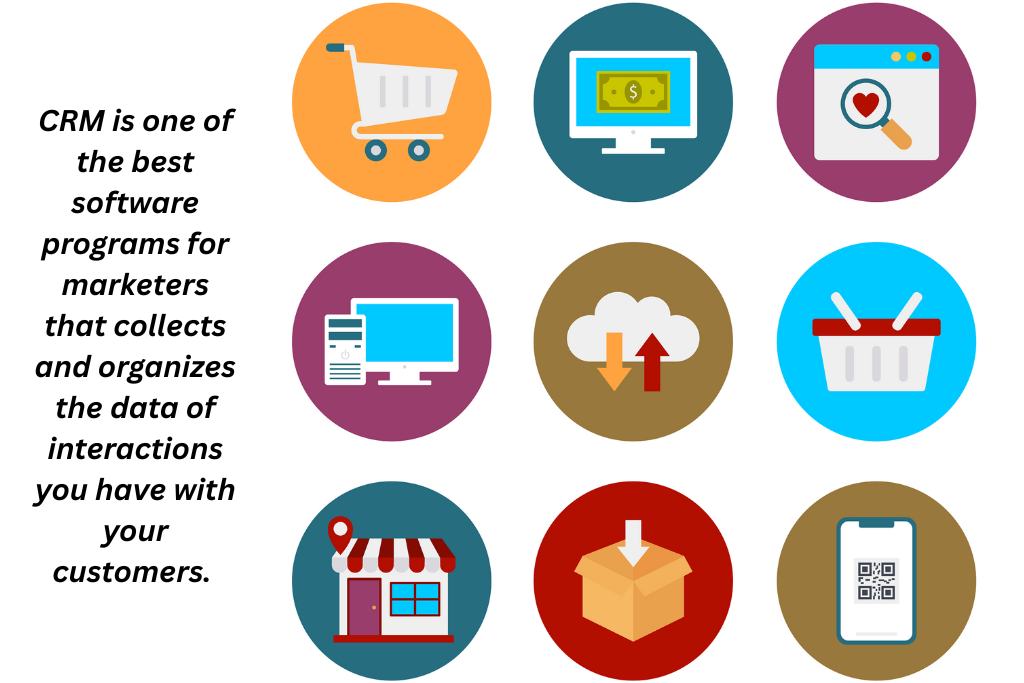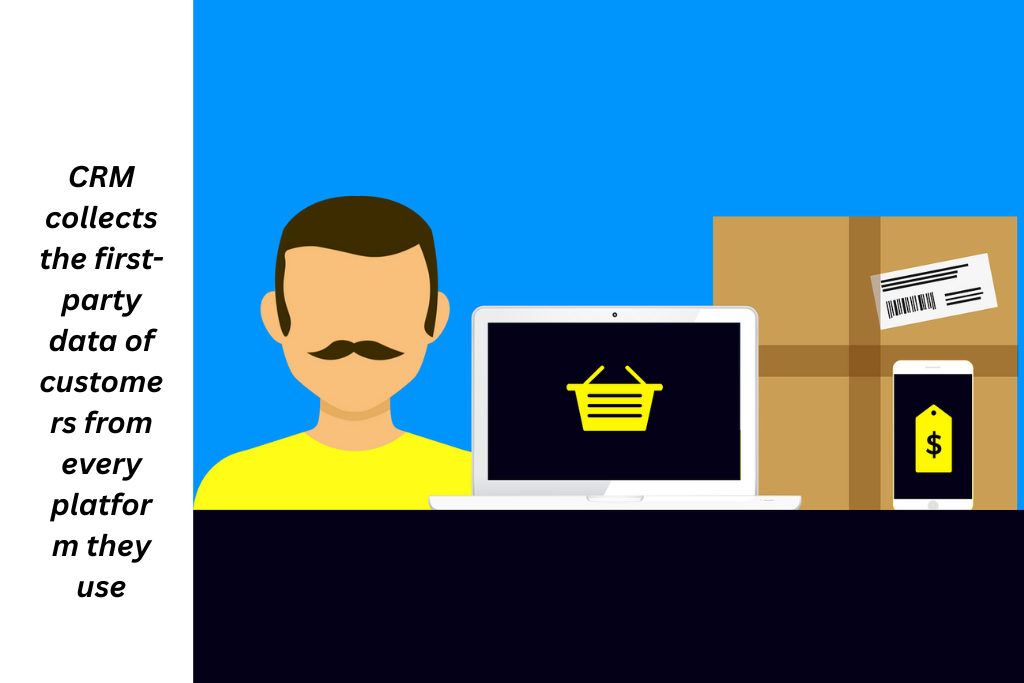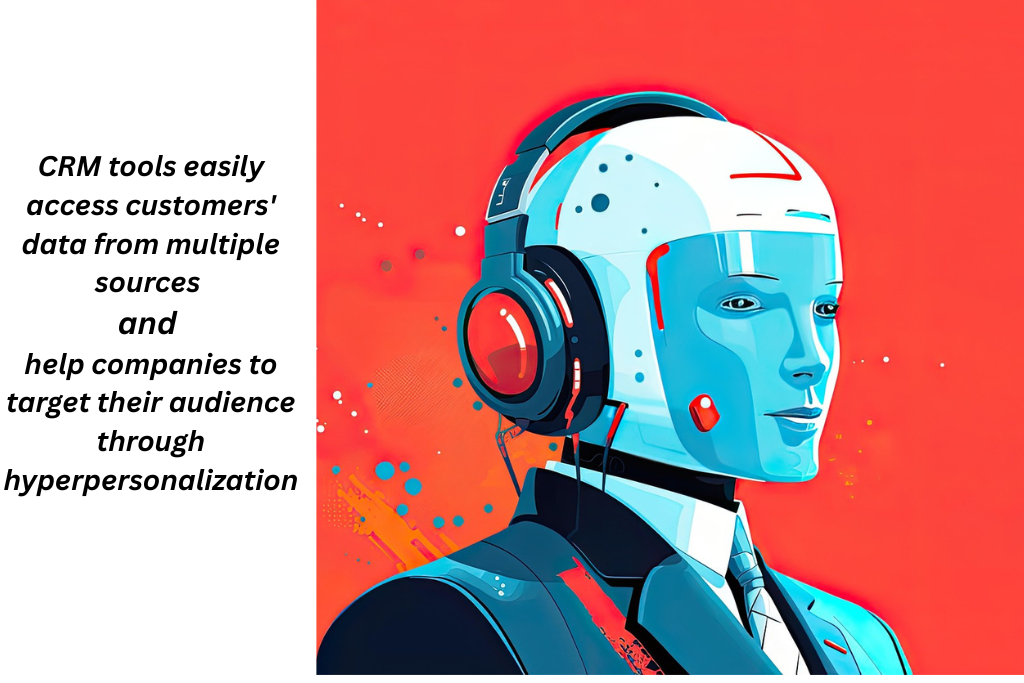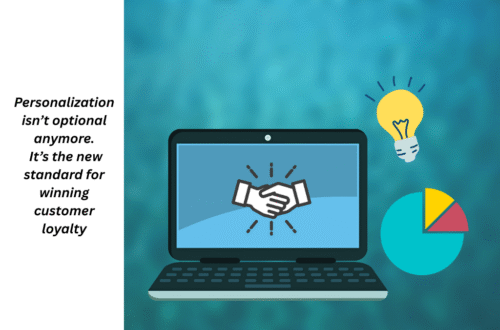
How SMEs Can Use CRM Data for Hyper-Personalization?
The secret to a successful business lies in the way you charm your customer. You need to understand and engage with them to create a lasting relationship. CRM is a system that manages your business interactions with current and potential customers and allows SMEs to create tailored experiences that build lasting relationships. The CRM tools easily access customers’ data from multiple sources and help companies to target their audience through hyperpersonalization.
CRM collects and presents data, giving your company a view of customers’ interests through their interactions and purchasing history. These systems organize and analyse data to compare it with historical information and help your sales team to be organized while gaining insights and closing deals.
Since hyperpersonalization is directly related to automation, the CRMs’ customized dashboards allow personalization and seamless automation of workflow.
Best CRMs for SMEs
- Vtiger for an all-in-one solution
- Flowlu for an affordable all-in-one solution
- Zoho CRM for scaling your business
- Salesflare for automatic contact enrichment
- Folks for simple, ultra-personalized emails
- HubSpot for building a content-rich business website
- Nutshell for robust marketing, sales, and engagement features
The Role of CRM in Hyper-Personalization
For those who don’t know about CRM, it does sound like a sales tool used by the sales team. On the contrary, CRM is one of the best software programs for marketers that collects and organizes the data of interactions you have with your customers.
This data plays a crucial role in hyper-personalization as it has accurate information about customers’ profiles and segmented audiences. With the help of this data, you can initiate personalized campaigns based on customer preferences.
Key CRM Data Points That Drive Personalization
Here are the key CRM data points driving personalization;
First Party Data
CRM collects the first-party data of customers from every platform they use. This includes their
- Location data
- Website visits and in-app activity
- Contact details
- Purchase history
- Queries and feedback
This data is derived directly from customers, which makes it accurate and reliable, providing a foundation for hyper-personalization.
Analyzing Behavioral Data
CRM analyzes the way customers interact with you on your platforms. It keeps a record of individual customers
- Frequency and recency of their page visits
- Abandon carts
- Email open rate and CTRs
Contextual data
The contextual data that CRM keeps a record of is the device type and the browser the customer uses. This also includes the customer’s location, time zone, and campaign source. All this data enables businesses to gather information and target their audience through hyper-personalized sales content.
Analyzing Digital Footprints
CRM gathers data on consumers’ social media activity and following of trends to understand their preferences. This information is used to tailor specific content to the target audience through personalized messaging, hence boosting engagement and better outcomes.
How to Use CRM Data for Hyper-Personalization
Here’s how SMEs can harness CRM insights to build hyper-personalized campaigns that convert:
Segment Your Audience Smartly
Use CRM data to create highly specific customer segments based on their
- Demographics (age, location, gender)
- Behavior (purchase history, website visits, cart abandonment)
Engagement levels (email opens, click-through rates
Leverage Behavioral Triggers
CRM platforms track user actions across touchpoints. Set up automated responses for behaviors like:
- Abandoned carts
- Repeated visits to product pages
- Inactivity or drop-off
Personalize Content and Recommendations
Use CRM insights to deliver:
- Product recommendations based on past purchases
- Personalized landing pages or dynamic web content
- Emails that greet users by name and suggest products they want
Sentiment Analysis
The data stored in CRM works like an emotional intelligence tool as it helps you to analyse and understand customer emotions.
Predictive Analysis
After evaluating the gathered data and insights, you can predict customer behavior even before they do. You can identify churn risk, lead conversions, and customers’ future needs.
Automate and Optimize with AI
Integrate CRM with AI tools to Automate
- Hyper-personalized email sequences
- Real-time chatbot responses
- Smart sales follow-ups
Tools That Integrate CRM with Hyper-Personalization
Salesforce AI
Salesforce’s Einstein AI is for businesses of all sizes across industries that are seeking a comprehensive AI-driven CRM solution. This tool offers the best AI capabilities and empowers businesses to personalize every customer interaction. It offers unparalleled hyper-personalization through predictive lead scoring and opportunity insights.
Qualtrics
Qualtrics is a robust experience management platform that combines operational and experiential data, but it falls short in providing hyper-personalised experiences through artificial intelligence. These tools’ insights are generated through data analysis, but not through automated machine learning processes.
Their unique selling point lies in our ability to seamlessly integrate offline and digital data sources, providing valuable insights for our clients. Companies that prioritize gaining a comprehensive understanding of the overall customer experience rather than relying solely on automated, personalized communication strategies.

Salesforce Personalisation
Salesforce provides AI-powered, real-time personalisation capabilities, tailoring every interaction based on both past and current customer data. It utilizes machine learning for personalizing CTAs, product recommendations, and enhancing in-app/web experiences.
It focuses on real-time and predictive personalisation, taking into account individual customer profiles in depth. Companies aiming for fast personalisation across various digital platforms with seamless crm integration.
Microsoft Dynamics 365: The Intelligent CRM Suite
Microsoft Dynamics 365 is ideal for businesses that are in search of a tool that not only seamlessly blends with CRM but also integrates with the existing Microsoft ecosystem. Dynamics 365 integrates with Microsoft products and offers actionable insights. Its key features include
- Predictive scoring
- Customer support
- Customer and field service
SAP CRM
This AI-powered customer segmentation tool is suitable if you want a comprehensive CRM solution with deep industry expertise. SAP CRM helps you in delivering a unified customer view and increasing customer experience. Its features include
- Predictive analysis
- Personalized recommendations
- Sales forecasting
Swifterm
Swifterm stands out as a leader in the field of true CRM data hyper-personalisation. This AI-powered application is tailored for e-commerce, operating independently to provide highly personalized email experiences based on each customer’s unique behavior. E-commerce companies seeking automated, high-return customer engagement without the hassle of manual targeting are looking for AI-powered solutions.
Dynamic Yield
Dynamic yield’s expertise in delivering personalized experiences to customers is primarily achieved through the use of conditional logic and rules-based segmentation in email campaigns. Their unique selling point is the ability to customize promotions for different segments within an email campaign. Marketing teams that favor a structured approach to personalization rely on predefined rules and manual adjustments for segmentation and targeting.
Conclusion
In today’s competitive digital landscape, SMEs can no longer rely on generic campaigns. They need software that runs everything smoothly while enabling them to compete with big players. CRM-powered hyper-personalization helps businesses build trust and boost engagement. It also drives growth by delivering the right message to the right person at the right time. With the right tools and strategies, even small businesses can deliver enterprise-level experiences that stand out.






